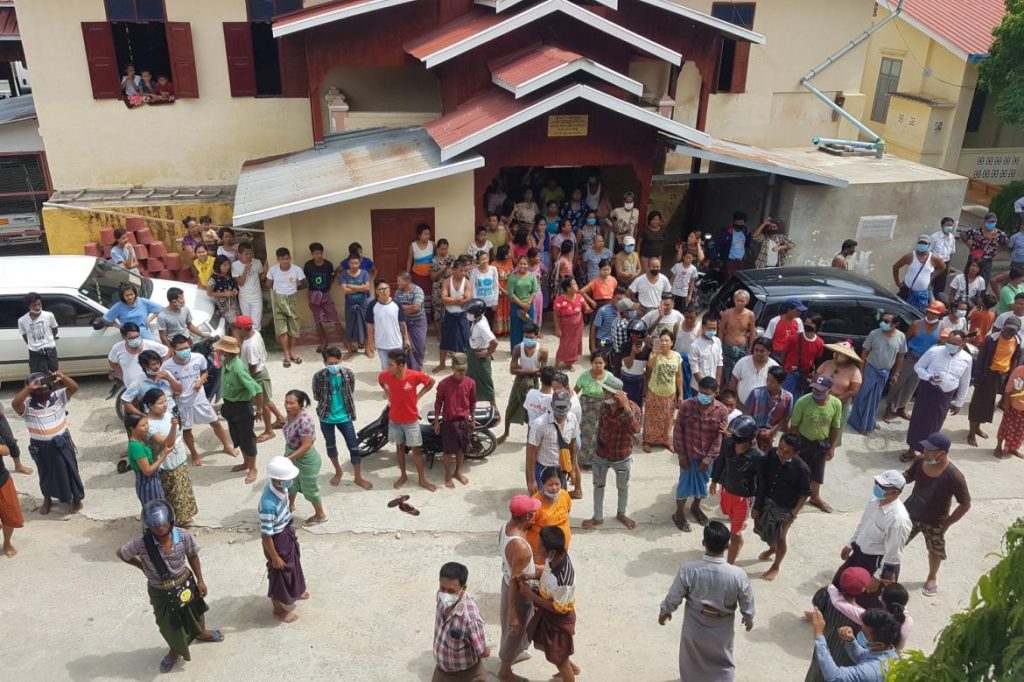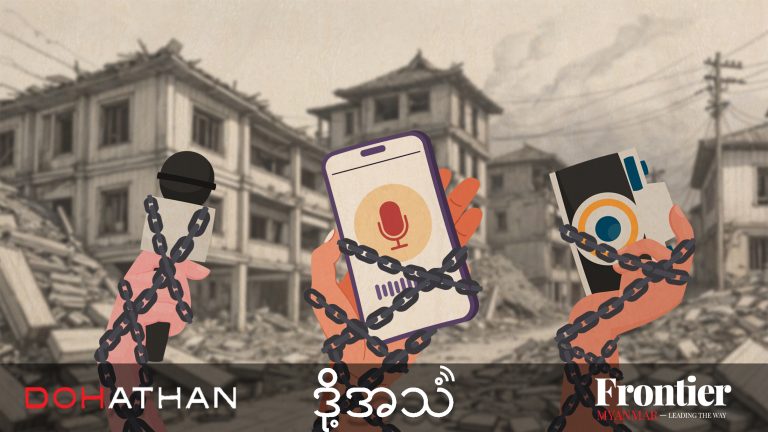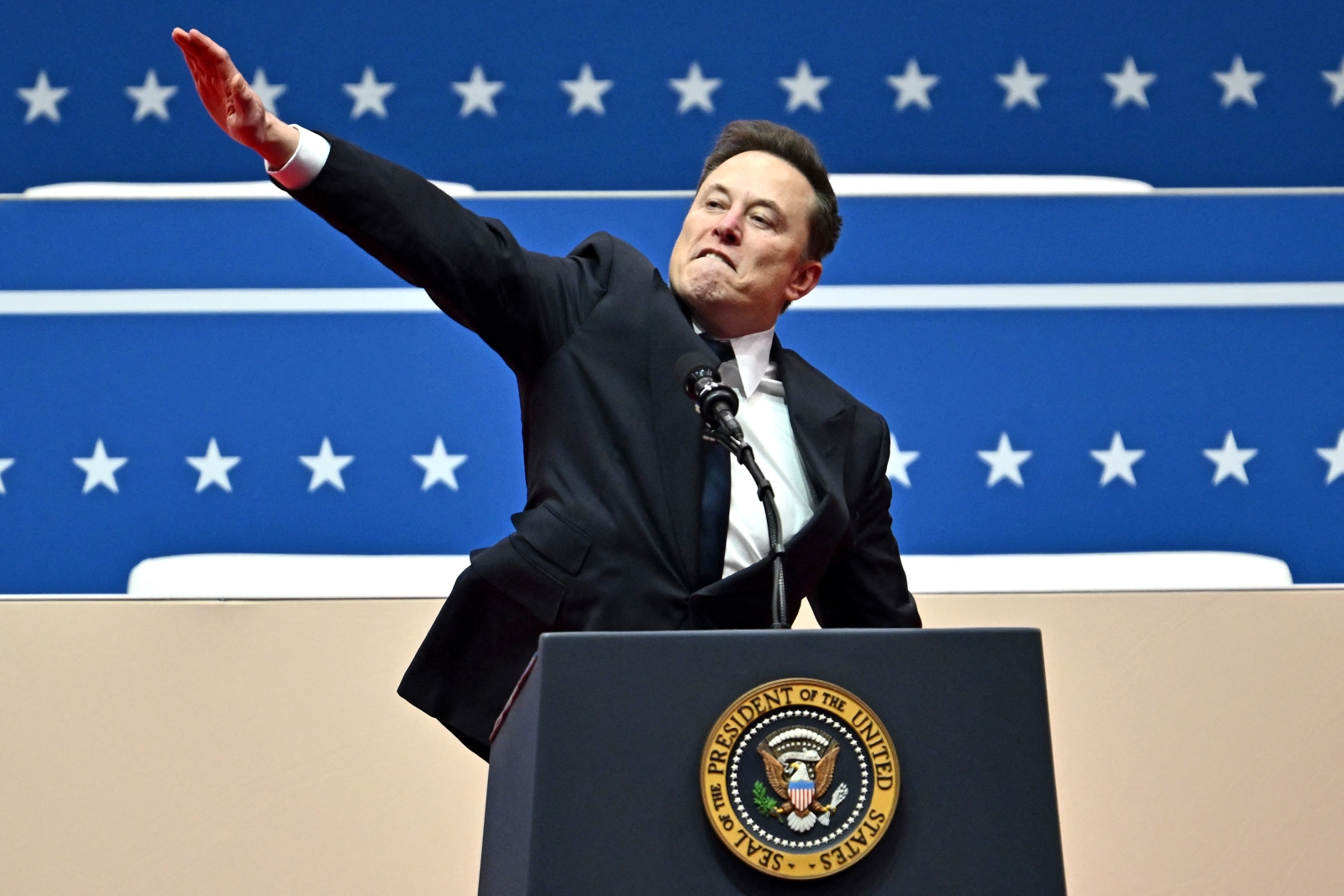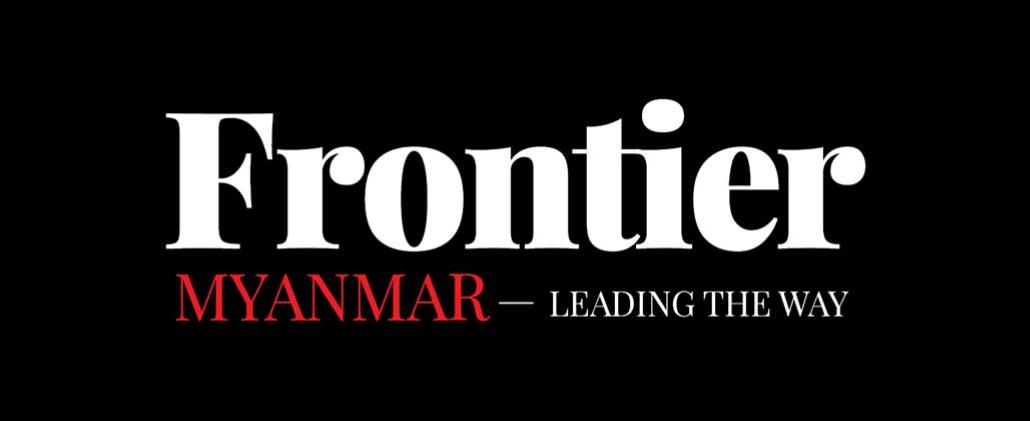Muzzling citizens with controversial views inhibits the diversity of opinion and freedom of expression that is essential for a healthy democracy.
By YAUNGCHI SOE NAING | FRONTIER
On June 5, German non-government organisation the Friedrich Naumann Foundation for Freedom announced on its Facebook page that it was planning to host a talk show about women’s rights in Myanmar on June 9.
FNF-Myanmar, which opened its Yangon office in 2013 with a mission of “promoting liberalism and democracy”, began hosting weekly online panel discussions after social restrictions were imposed in response to COVID-19. The NGO said the event would feature five panellists, including a social media influencer, an entrepreneur, a scholar and two writers.
For the first time since it launched the panel discussions in late April, FNF-Myanmar was criticised over a panellist. The online criticism targeted one of the two “writers”, Ko Yarzar Wizaya, whose Facebook account describes him as a trade marketing manager at mobile operator Ooredoo Myanmar. Outraged Facebook users accused him of being a sexist – on the basis of previous Facebook posts – and expressed concern that the talk show would allow him to air patriarchal views.
A widely shared screenshot of an April 16 post on his personal account that since appears to have been deleted shows Yarzar Wizaya saying humorously, “Women usually want to expose their body when they stay too long in the house.” In an April 13 post on a page that promotes his writing, Zaryar Wizaya wrote that males of every species were endowed “by nature” with the obligation to “protect females and their ovaries”, in order to “prevent extinction”.
The day after the announcement, FNF-Myanmar announced that the “public comments about him not fitting the talk’s agenda” had prompted Yarzar Wizaya to excuse himself from the panel. While some Facebook users expressed satisfaction at this, others continued to criticise the NGO for inviting the man in the first place. The next day, on June 7, FNF-Myanmar cancelled the talk entirely, because “attacks on persons and organisations before the event” had overshadowed “the issue we wanted to discuss: discrimination against women”.
The episode seemed to highlight the reluctance of many in Myanmar to accept diversity of opinion and understand the importance of free speech. This is concerning because without both of these political reform in Myanmar will be hollow.
FNF-Myanmar said it had deliberately chosen panellists with different perspectives on women’s rights for the talk show because it “had hoped for a conversation about discrimination, stereotypes and how to overcome them”. The NGO said “such conversations must allow for different opinions”.
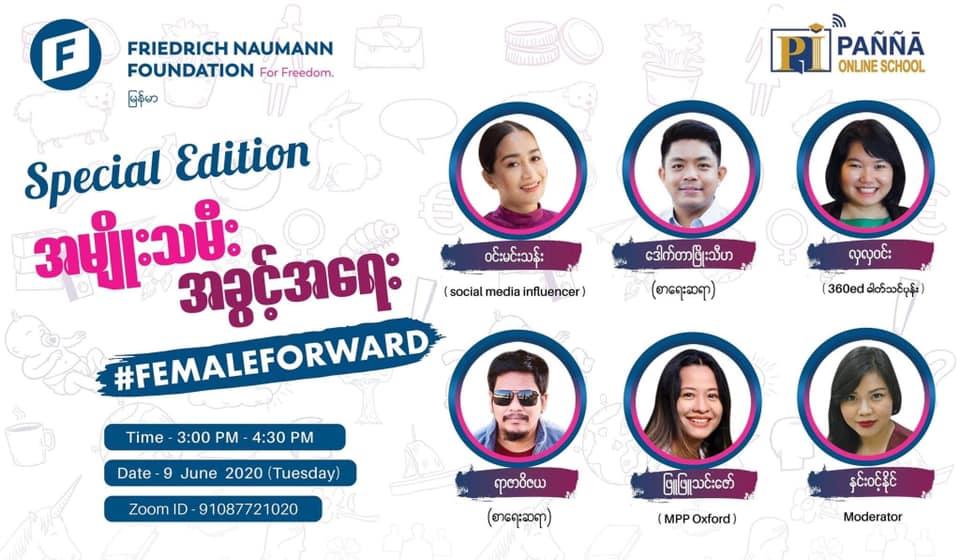
Promotion for an online talk show about women’s rights hosted by the Friedrich Naumann Foundation for Freedom, which was cancelled after the German NGO was criticised for including Ko Yarzar Wizaya, an alleged sexist. (Facebook @fnf.myanmar)
Acceptance of pluralism and tolerance of diverse opinions are essential elements of a healthy democracy. The essence of democratic citizenship is accepting that those who hold anti-liberal views and oppose rights-based movements have the right to freely express their perspectives, as fellow citizens and as humans with inalienable rights. It is not the rights or wrongs of an opinion that determines whether a person has the right to express it.
On May 17, a medical doctor wrote a post on his personal Facebook account that used insulting language about Buddhist monks who had opposed a decision to include sex education classes in the high school curriculum. Dr Kyaw Win Thant had expressed support for the move in his post, which caused uproar in the dry zone town of Meiktila, which he was visiting from Yangon. On May 19 he apologised to monks at a monastery in the town, while an angry mob gathered outside, leading to a tense stand-off with police.
The doctor was arrested despite making the apology after an official from the Department of Religious Affairs filed a complaint to police. On June 2 a court in Mandalay sentenced him to one year and nine months’ imprisonment for using obscene language and outraging religious feelings, under sections 294 and 295(a), respectively, of the Penal Code.
Although Kyaw Win Thant, a Buddhist, did make insulting comments – accusing monks in Meiktila of watching pornography, visiting brothels and gambling on football matches – the jail sentence was clearly disproportionate to the offence and will intimidate those who want to express critical opinions about religious belief and traditional values. A consequence of that intimidation will be self-censorship.
Differences of opinion can be fierce when they involve sensitive issues such as religion, race, ethnicity, gender and traditional values. It is healthy for a democracy to have people who believe in liberal values and human rights, and stand for the protection of individual rights against any form of abuse. But commonly held illiberal views and prejudices need to be heard in public and freely debated if they are to be confronted and minds are to change. The right of citizens to participate in public conversations, regardless of their identity, social status or views, must be guaranteed and protected.
Opinion polls in Myanmar have found that many citizens have conservative, and often intolerant, views. The latest Myanmar Asian Barometer Survey Report, published in May, highlighted the dominating influence of traditional values on politics and society, while also revealing that “value liberalisation”, including a “greater acceptance of gender equality and an embrace of individualism”, has grown steadily in recent years, though from a low base.
On pluralism, 78 percent of respondents agreed with the statement: “If society has too many ways of thinking, society will be chaotic.” On democracy, 30pc of respondents defined the word in terms of “good governance”, while only 18pc emphasised “freedom”, suggesting that individual liberty is subordinate to other concerns. The report also highlighted that more citizens prioritise addressing inequality (40pc of respondents) over guaranteeing political freedom (29pc).
The holding of regular elections signifies the acceptance of democratic procedures for choosing governments, but this alone does not sustain a democracy. In order to ensure accountability and transparency in government decision-making, it is not enough to have legal codes that support freedom and rights; citizens also need to believe strongly in their importance and be sensitive to oppression and abuses of basic rights.
Threats to democracy will be deterred only when the people truly believe in democratic values and are always ready to protect them – even for people whose views they strongly disagree with.


